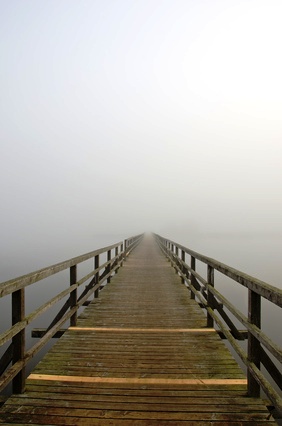 Life is full of transitions. We change schools, leave our parents’ home, form new families, move from job to job and place to place. There is a certain amount of stress inherent in every transition. In 1967, psychiatrists Thomas Holmes and Richard Rahe developed the Social Readjustment Rating Scale (SRRS), which tracks 43 different life changes, and applies a numerical value to each, indicating the level of stress likely to be experienced by the person undergoing that transition. Death of a spouse tops the scale, which includes not just negative, but also positive events. Other stressors referenced on the scale are pregnancy, a child leaving home, a business readjustment, and taking out a mortgage.
Life is full of transitions. We change schools, leave our parents’ home, form new families, move from job to job and place to place. There is a certain amount of stress inherent in every transition. In 1967, psychiatrists Thomas Holmes and Richard Rahe developed the Social Readjustment Rating Scale (SRRS), which tracks 43 different life changes, and applies a numerical value to each, indicating the level of stress likely to be experienced by the person undergoing that transition. Death of a spouse tops the scale, which includes not just negative, but also positive events. Other stressors referenced on the scale are pregnancy, a child leaving home, a business readjustment, and taking out a mortgage.
To a greater or lesser degree, most of us have developed coping skills to deal with life’s transitions. Sometimes we have time to prepare, which may be helpful, and at other times we are taken by surprise. But one kind of transition brings special challenges, and I call this “The Bridge.” I liken the experience to crossing a bridge shrouded in fog.
When we are on The Bridge, we know a change is happening. We know we are moving to a different phase of our lives. But we don’t know what that new phase will be. We look behind us, and we see our life as we knew it receding away from us. We look ahead, and our destination is completely hidden from view. We have no choice but to move forward.
Sometimes when we’re on The Bridge, we have a little information, but never enough to define the change that is coming. We can’t prepare, because we can’t anticipate our future circumstances. We feel restless and uneasy.
It is human nature to want to be in control of our circumstances, and when we’re experiencing The Bridge, we don’t have enough information to exert any control. It is impossible to force things to happen more quickly, and in our hearts we know we cannot move back into the past. The change is on the way. We feel its inevitability, and we cannot make it happen on our timetable. We are helpless to speed up events.
People who by their nature rely on concrete information, find The Bridge times particularly stressful. They would rather ignore intuition, and the vaguely defined feelings that characterize being on The Bridge. But “facts and figures” people, as well as those who allow intuition to guide them, are at the mercy of unfolding reality. We simply cannot force change to accelerate. We are stuck on The Bridge until we reach the other side, and we cannot see how far away our destination point is.
So how can we cope during such a period of undefined, impending change?
The only course we have, other than to struggle and be miserable, is surrender. When we surrender to what is, to being human and having limited knowledge and control, we make ourselves as comfortable as possible while we wait. We can look around at our lives, and do what is available to do. We don’t know where we’ll be in six months, but we can finish the work on our desks today. Bridge time is a good time for getting rid of clutter in our lives, giving things away and tossing what we no longer need. It’s a wonderful time for treasuring our relationships, doing something special with our children, spouse, or beloved friends. And it’s an excellent time for taking good care of ourselves, being gentle and understanding toward ourselves, having fun and experiencing as much joy as possible in the moment.
It’s also a good time to get back to some basics, like writing down what we desire. Insofar as we know what we want, we can set forth on paper our intentions.
“I am doing work I love.”
“I work with people I enjoy.”
“I have a happy, fulfilling marriage.”
“I have a high, ongoing, dependable income.”
“I spend lots of quality time with my wife.”
“Our family enjoys fun times together.”
“I am slender and flexible.”
“I am in excellent health.”
“I am living in a beautiful home I love.”
Change is coming. Many details remain a mystery. We don’t yet know how our lives will look in the future, but we can send our instructions out into the Universe. And because Divine Providence may have something even better in mind, we always include the caveat, “I decree this or something better, for the highest good of all concerned.”
Do you have a “Bridge” story? How did you cope?

You know our lives have experienced many bridges! We have always treated each like a grand adventure about to enfold. It is a wonderful life. Thanks for your great explanation of this phenomena!
Beautifully articulated piece that describes that inbetween place. Humans that we can be we want to know. I have begun to live in the now more. It sets the past where it is-back there and the future where it is-not yet fully formed. So today is a good day all by itself-until the next day and then I get to do it all over again! How lucky are we? Thankyou for your contribution!
Thank you. Your beautiful daughter led me here, and I really needed to hear this. My bridge hurts right now, and the pain is making me send out things I shouldn’t broadcast to fate…
Welcome, DeAnna. It can be such a difficult time. I’m sending you light and love! Jillian